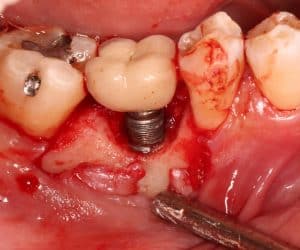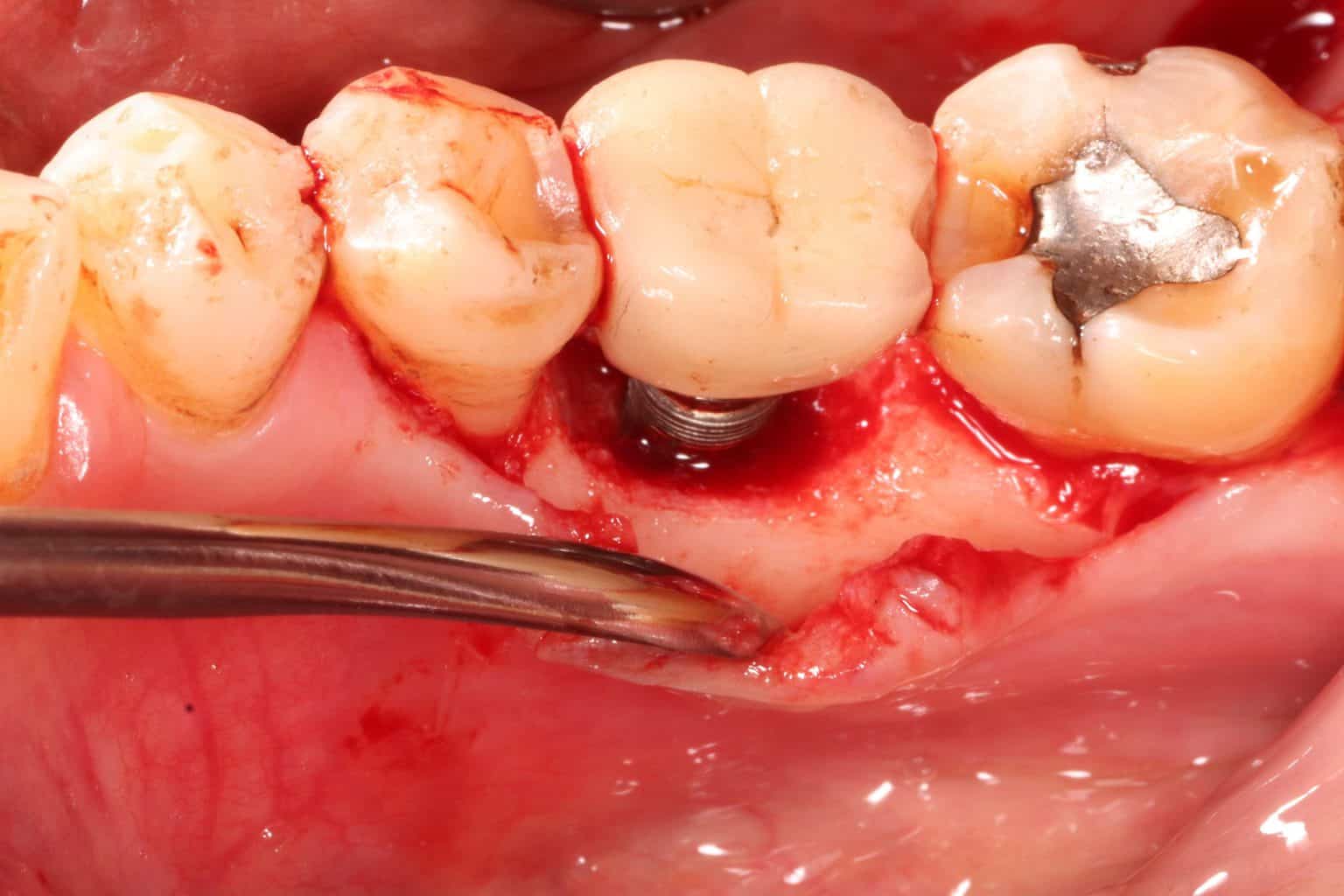The term peri-implantitis isn’t widely heard of, but it is still important to understand what it entails, especially if you’re a dental implant patient.
Peri-Implantitis is an infectious disease caused by chronic inflammation formed around soft and hard tissues surrounding your dental implant. This is associated with a loss of bone structure and inflamed gums. Chronic inflammation can negatively impact your tissues and organs, and research has suggested that it can play a role in introducing adverse health conditions such as cancer or asthma.
For dental implant treatment to be successful, and for results to be seen, this relies on having a strong bone. Chronic inflammation causes bone loss, and this is likely to lead to your implant becoming loose or falling out entirely.

Causes of Peri-Implantitis
Dental implants do not attach to the gums as easily as natural teeth do and hence, the risk of inflammation and peri-implantitis becomes higher. When the gum remains loose, this can lead to harmful bacteria penetrating inside the gum, leading to inflammation.
The key causes of peri-implantitis are:
- Bad Oral Hygiene – Poor brushing of teeth and an unbalanced diet comprising of sugars and starchy foods
- Regular tobacco use from smoking
- Poor control of adverse systemic conditions such as osteoporosis
- History of gum disease
- Teeth Grinding or Bruxism
The Signs of Peri-Implantitis
Peri-Implantitis is fairly difficult to spot at times but they are noticeable. It is important that you consult your dentist as soon as possible if you see the following signs:
- Redness and swelling of the soft tissue
- Swollen lymph nodes
- Tenderness within the gums
- Regular bleeding from brushing

Can Peri-Implantitis Be Prevented?
The impact of Peri-Implantitis can be reduced significantly at home. Your implant needs to remain clean, and to do this, follow some simply oral hygiene tips:
- Brush your teeth daily with particular care and attention with your implant
- Floss in and around the implant
- Use mouthwash to remove bacterial properties from the mouth
- Regularly visit the dentist to clean your implant
There are consequences if Peri-Implantitis is left to penetrate inside the mouth and if you do not get early treatment. The dentist would accelerate the healing of the bleeding gum and attempt to control any harmful bacteria. This will help speed up the healing process.
Are you an implant patient showing signs of Peri-Implantitis? Or you’re experiencing complications with your fitted implant, Contact our helpful Woden dentists today for early treatment!


